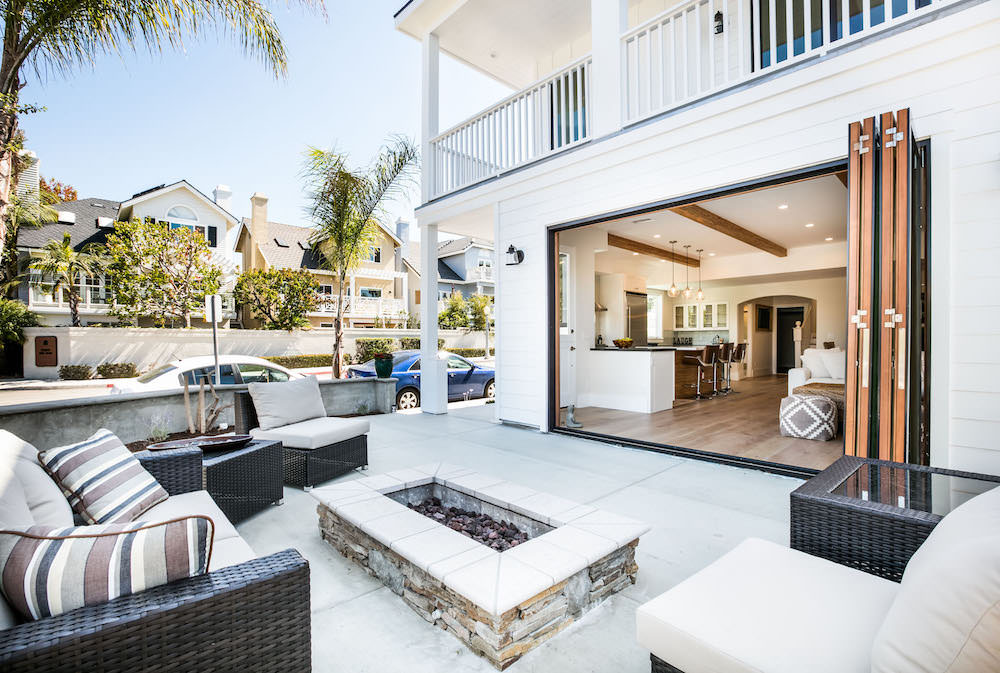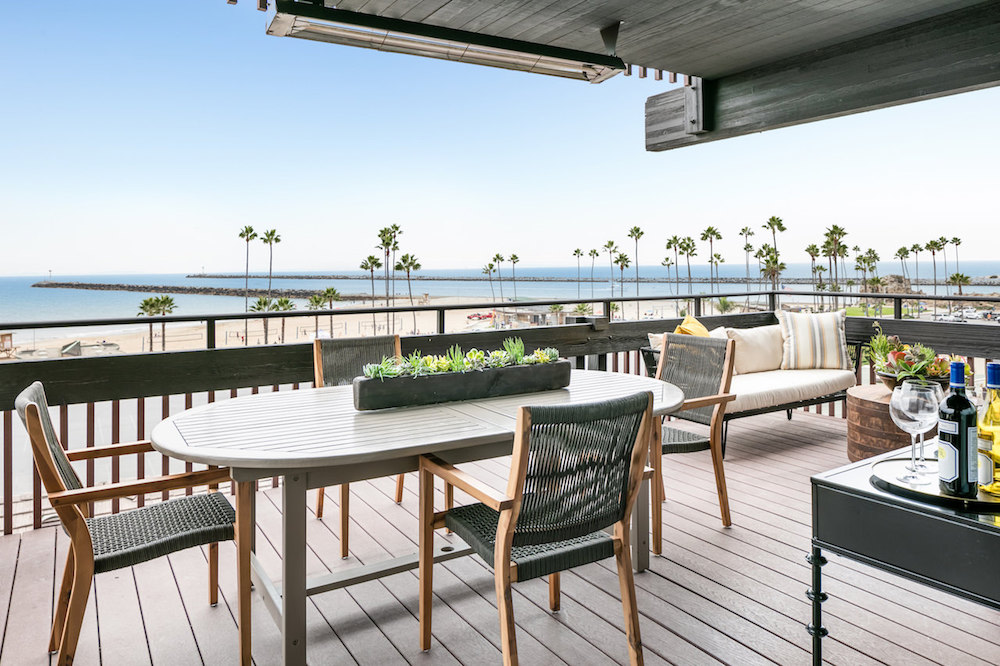Vacation Rental Business: A Guide to Earning a Big Return
Right now, in the United States alone, the vacation-rental earned $20.27 billion in 2024. While $20.27 billion is a substantial amount, revenue is expected to continue growing at a rate of 22.2% by 2029 to $24.78%.
What does this mean for you as a potential property owner? It means you chose the right business to be in for making money!
While the thought of purchasing a cute little fixer-upper in a dream location and renting it out to dream vacationers is a fun one, what motivated you the most to begin this venture? It’s probably the thought of earning yourself a good income.
So how do you go from the idea of renting out a vacation property . . . to actually doing it? Is there a way to ensure you make a healthy profit, rather than lose your investment? What are the things that make all the difference to renters who will leave positive reviews and return to rent from you over and over again?
Grand Welcome Franchise answers all these questions and many more with our in-depth, go-to guide for starting your own successful vacation rental business. Follow the six steps below thoroughly, and you’ll find the income you’re after!
Browse any part of the guide with the quick links below:
Step #1: Open a Vacation Rental Business
Before you jump right in and buy a property to fix up and rent out, there is a lot of preparation that must be made in order to make it work. You must write up a vacation rental business plan, review and understand all the vacation rental rights and laws, go through a vacation rental property management checklist, and know how to prepare your house for rent.
Starting a Vacation Rental Business
Knowing how to start a vacation rental business in a way that almost guarantees success is indispensable knowledge. So whatever you do, don’t start your own property letting business without thoroughly understanding every step in this guide.
First of all, it is important to gather a team of professionals who will be on your side. You’ll want the following, all well versed in issues related specifically to vacation properties:
- A realtor to offer real estate insights
- A lawyer to give legal advice
- An accountant to answer the money questions
- An insurance agent to make sure you’re covered
- A cleaning and maintenance crew that will keep your guests happy
- A listing platform with unprecedented benefits and impeccable service
A Vacation Rental Property Business Plan
A short-term rental business plan gives yourself (and others on your team) a framework from which you’ll work. It will help you understand:
- The industry in general
- Your own company
- Your competitors
- Your customers
Analyzing each of these areas will help you prioritize your goals and come up with a strategy for success.
Vacation Rental Business Plan Template
To help ease your effort, follow a vacation rental business plan example. A good one will have at least 11 parts to it:
- A short, comprehensive summary
- The who, what, where, when, and why of your company
- The landscape of the industry with key facts, current trends, and expectations
- Buyer personas and what they each want and need
- Research on your competitors
- How you plan to run your business on a daily basis
- A marketing strategy
- How to generate bookings
- A breakdown of costs and target revenue
- How you are going to finance your business
- The milestones and targets you plan to meet
Short-Term Rental Tax Rules, Permits, and Regulations
Some of the things you’ll need to understand include short-term:
- Legal terms
- Tax laws
- Licenses
- Permits
- Insurance Requirements
- Rules
- Rights of owners and rights of guests
Again, having a trustworthy team of professionals backing you up is pertinent so you don’t find yourself having accidentally broken the law.
Vacation Rental Inspection Checklist
Next up, it’s time to create and review your vacation rental inspection checklist. This will act as a record of the state of your property before it’s rented to guests. This helps to make sure your property is ready to be used, and also helps assess damages should you need to make a claim to your insurance company after a guest checks out.
This list can include inspecting items such as entry, appliances, electronics, safety measures, furniture, etc.
How to Prepare Your House for Rent
Making the home welcoming and livable to your guests is one thing you need to do to prepare your house for rent. Make sure it is decluttered, refresh the paint and flooring, check that all appliances are in good working order, and spray for pests.
Additionally, there are a few behind-the-scenes things you should do. Ensure the mortgage is current, have a healthy reserve in savings (at least three months worth of expenses), and line up a property management company if you choose to use one. Of course, have a solid lease agreement ready.
Step #2: How to Invest and Make Money
Since you got into this business to make money, you want to do everything within your power to make that happen. Losing money is not an option for most property owners, so investing wisely (in the right place and at the right time) and using a good method for setting short-term rental pricing should be at the top of your list of priorities.
Vacation Rental Investment Guide for Beginners
Knowing if a particular rental property is a good or bad investment (and knowing how to invest in rental property in the first place) can be a very involved subject with many nuances that can take effort to master. However, just knowing the basics is a good place to start.
A rental investment:
- Provides appreciation over time due to property value increases, the mortgage being paid down, and improvements made.
- Can provide an ongoing cash-flow return when the calculation of estimates (rates, expenses, etc.) is positive.
- Carries risk of loss and no guarantee of return.
How Much Money You Need to Invest in Property
Financing a rental property through a bank is different than financing for a primary residence. Depending on your credit, you must put at least 20% down. So, if you want to purchase a $200,000 property, you’ll need $40,000 in cash up front.
If you don’t have that cash on hand, (carefully) consider taking out a home equity line of credit. Or, another possible option is to use “Seller Financing.” This means the seller of the property acts as the bank/mortgage company, negotiates a smaller down payment, and receives the monthly mortgage payments.
When and Where You Should Invest in Property
When you should invest mostly has to do with your own personal and financial situation. However, as with any type of long-term investment, the sooner you start, the better. That’s because property values will always rise in the long run.
As far as where you should invest in property, it’s smart to look at tried-and-true places (like Hawaii or Orlando) as well as up-and-coming locations (like Texas or near The Great Smoky Mountains). Here are a few things to consider:
- Warm weather locations (like Palm Springs) usually do better than colder locations.
- Multiple high seasons (like Lake Tahoe) mean more bookings.
- Some cities (like Boston) highly tax vacation rentals.
- Urban population centers (like New York City) have very expensive real estate and fierce competition.
- Smaller to medium-sized towns with high occupancy rates (like Las Vegas) are a good bet.
If you are thinking about investing your money in a beach house, check this article.
How to Make Money on a Vacation Rental Property
Obviously, knowing how to make money on a vacation rental property is a key bit of information to know before venturing into this business. Making the correct calculations and being a master at marketing (which we’ll talk about later) are important, but another thing that really makes a big difference in how much money you’ll make is the way you rent your property. If you rent out your home sporadically or without a real intent behind it, then you can expect sporadic, marginal returns.
On the other hand, if you treat your vacation rental property as a fully-formed business where your customers’ presence and comfort are prized, then you can do very well for yourself.
How to Set Short-Term Rental Pricing
Setting smart short-term rental pricing on your property is a task that should not be taken lightly. Putting in some effort and research will make all the difference in your profit margin.
There are many things to take into account when pricing:
- Your expenses
- Your rental history
- Your property
- Similar properties
- Your reviews
- Your high and low seasons
- Your goals
You can evaluate these things on your own, or employ pricing tools such as:
- Airbnb Price Check Tool
- Airbnb Price Adjustment Tool
- Airbnb Price Estimator Tool

Step #3: Take the Opportunity to Franchise
Once your initial short-term rental property has taken off, it’s time to think about turning your business into a franchise. That’s because you’ll have already done most of the work! You’ll have already learned about starting a vacation rental business, written a vacation rental business plan, learned how to prepare your house for rent, and figured out how to make money with vacation rentals. Now, just expanding your offerings on the vacation rental market is quick and easy because the rule of Economies of Scale comes into play and your returns can be much higher with less effort overall!
Vacation Rental Market Trend Analysis
Performing a vacation rental market analysis is a good idea. Find out the answers to these two questions:
- What is the vacation rental market size?
- What is the potential vacation rental market growth?
Some of the things you should research generally, as well as in your specific rental property location, include statistics, trends, and forecasts regarding the following areas:
- Vacation Rental Industry (companies, growth)
- Hosts (investors, properties)
- Guests (demographics, money spent)
- Destinations (seasons, competition, taxes)
- Travel planning (platforms, marketing media)
Best Property Management Practices & Franchise
When you own and rent out more than one property, following best property management practices become crucial. Franchise managers have operations put in place that will maximize the revenue generated from the short-term rental property.
By using the following approaches, you can meet both your own expectations and your guests’:
- Provide easy-to-use instructions for the parking/entry situation, heating/air conditioning unit, and entertainment/electronics.
- Ensure kitchen and bathroom items are fully stocked. This includes all cookware, coffee maker, herbs/spices, dishwasher/washing machine detergent, toilet paper, etc.
- Have a good relationship with your housekeeping team and set clear standards in writing.
- Inspect everything prior to a guest’s arrival to see that it’s all perfect and ready to go.
- Perform preventive maintenance so an emergency breakdown doesn’t happen when guests are staying, foiling their trip.
- Use technology to automate and streamline the booking and payment processes.
- Market to increase your presence in the marketplace.
- Brand your company to establish authority and create rememberability.
Yes, you can do all these things on your own, but it can get complicated and time-consuming the more properties you add to your portfolio. That’s why many vacation property owners seek professional franchise management services. The cost is almost always eclipsed by the benefits and profits gained. If you are interested in starting your own vacation property management business, talk to a franchise company specializing in vacation rentals and find your opportunity.
Small Town Franchises
When looking to expand your vacation rental business, small town franchises are a good way to go. They help you control the market in an area with little competition to hold you back. Investing in a small town is also a great way to give back to the local community and economy.
There is a trick to choosing the right small town, however. Single out smaller markets that offer not only the important things like access to airports, restaurants, entertainment options, cellular reception, and healthcare, but those which also offer a certain “je ne sais quois” many travelers are seeking. Charm, local flavor, and beautiful landscapes are at the top of the list here.
Additionally, look for areas where a younger population is buying homes. This signals a growing market that has a lot to offer both now and in the future.
Step #4: Market Your Business
There are a lot of reasons to go big when it comes to vacation rental marketing. Here are five of those reasons:
- You’ll rank higher in search results.
- There will be a significant uptick in bookings.
- It shows your commitment as a professional vacation rental host.
- It instills a sense of trust and reliability with your potential guests.
- Your viewers will appreciate the information, as it helps them make a decision.
How to Do Vacation Rental Marketing
When thinking about how to market your short-term rental, there are literally dozens of ways. How can you optimize the options so you don’t waste money, but gain it instead? Listing your home on a vacation rental site is the first, most obvious, and best way to get noticed by guests seeking short-term lodging.
When you list your property, you get a lot more than just a little blip on the results page. For example, listing with Grand Welcome gives you full access to:
- A state-of-the-art website
- Full online booking facility
- A mobile-responsive website design
- Personalized email marketing campaigns
- Both Google and Bing organic and paid marketing campaigns
- Social media campaigns
Property Description: For Rent Sample
Property description for rent sample absolutely must include the following four components:
- An engaging, inviting, informative vacation rental description. This should describe the property’s amenities and facilities, information about the location and surrounding area, and the experience guests can expect.
- High-end pictures and videos. Give your guests a great first impression and a good grasp on the space. Aim for more than 20 photos and a couple of videos. This will go a long way in establishing trust in your expertise as well as generating excitement over the vacation itself.
- Clear pricing. Use a calendar view to show available dates and nightly prices. Break down any extra fees like cleaning, additional guests, taxes, etc. If you are offering a deal or promotion, highlight it and make it easy to redeem.
- Easy-to-understand policies. Do you require a deposit? What is the refund policy? Are pets allowed? How about parties? You’d better put it all in writing.
Putting Your House on Airbnb or Grand Welcome
Since Airbnb has a huge presence in the vacation rental market, most short-term rental platforms follow the same basic steps as it does for listing homes.
You’ll need to fill in some basic information, such as city, home type, number of bedrooms/bathrooms, and number of guests that will fit in your property. You’ll then add your property description, upload pictures and videos, fill out the availability calendar, set your policies and pricing, and then publish. That’s it!
As mentioned before, the same general process for putting your house on Airbnb will apply for other listing sites, Grand Welcome included.
Vacation Rental Management Software Options
Vacation rental software can support your business management:
- Facility maintenance
- Bookings
- Customers
- Data and reports
Using vacation rental management software can simplify your own experience as a host and increase the satisfaction of your guests. That’s because it integrates with online booking websites and is designed to track daily activities such as promotions, guest traffic, cleaning staff, customer satisfaction, and more.
When comparing vacation rental software pricing, be sure to compare apples to apples. What does each program include and which one will help you best realize your specific financial and business goals?
Step #5: Provide Stellar Customer Experience
Once you have the business side of your rental taken care of, it’s finally time to think about the specifics that will give your customer the experience he or she wants and deserves. For everything from concierge ideas and a vacation rental welcome letter, to vacation rental cleaning services and a vacation rental maintenance checklist, here is everything you need to do before saying, “Welcome!”
Vacation Rental Concierge Service
Knowing how to wow your renters is the secret to getting great reviews once they’ve checked out. Vacation rental concierge service is the term used to define the services that make a guest feel welcomed, taken care of, and pampered.
Unlike a hotel concierge, you are not expected to book theater tickets or dinner reservations upon request. However, if you want to truly make a lasting impression, you can! If you don’t live locally or don’t want to bother with pulling this type of thing off on your own, there are plenty of vacation rental concierge services who will gladly do it for you. Or, use a virtual concierge service with Alexa for vacation rentals.
For a more down-to-earth concierge service that still feels personal and makes the stay one-of-a-kind, some concierge ideas simply include:
- Leaving a welcome snack and beverage from a local purveyor
- Making under-the-radar restaurant suggestions
- Providing free parking passes to oft-visited tourist attractions
- Offering airport pickup/drop off or local area shuttle
Welcome Letter Template
It’s surprising how a small gesture can make a big difference. Such is the case with a vacation rental welcome letter!
Since first impressions count, how your guest feels received in an unfamiliar place can set a positive tone that lasts through their entire stay.
Here are six tips:
- Write it, don’t type it.
- Use nice stationery and a quality pen.
- Tailor it to your guests. For example, include a cute doodle for the kids.
- Include specific details about the property, such as the code for the laundry room.
- Invite the guests to leave comments in a welcome book.
- Leave your direct contact information.
Don’t feel like you have to know how to write a welcome letter to guests. Use a welcome letter sample to make the task easy and fast.
Vacation Rental Cleaning
The cleanliness of a vacation home is of paramount importance to customers. No one wants to stay in a home that is dusty, dingy, and dirty. In fact, negative reviews often follow a stay in an unkempt rental. You can avoid the embarrassment and negative attention by following a vacation rental cleaning checklist.
Some of the items that may not immediately come to mind when it comes to cleaning a rental could be:
- Clear and clean the garbage disposal drain.
- Lint roll upholstered furniture.
- Discard food out of the refrigerator.
- Wipe down cupboard fronts and handles.
- Take the trash to the curb.
- Keep toiletries and supplies stocked.
- Check for missing items.
When interviewing vacation rental cleaning services, it’s helpful to hire a licensed company that specializes in giving a “hotel clean” using high-quality products.
Vacation Rental Maintenance Checklist
Just as important as vacation rental cleaning, is vacation home maintenance.
A good vacation rental maintenance checklist will include all the usual culprits such as landscaping, removing snow, checking the heating and cooling units, replacing light bulbs, and checking the locks, but also the following easy-to-overlook tasks:
- Replace cracked weather stripping on windows and doors
- Clear out roof gutters
- Clean the barbeque grill
- Check leaky faucets and toilets (and replace toilet flappers)
- Rotate and flip mattresses
- Look for indications of pests
- Inspect the fireplace
- Clean refrigerator coils
Maintaining a rental property requires a big effort. If you live far away or aren’t all that handy, that’s okay! Just hire vacation rental maintenance services to do the work for you.
Step #6: Start Your Business
Once you’ve reviewed steps one through five in this complete guide for vacation rental owners, it’s time to take the plunge!
So how do you get in on it and make money in vacation rental business? Here are two major options you can take:
1. List your vacation rental property with Grand Welcome to earn revenue with our easy and comprehensive management program.
The four steps to listing with us are:
- Plan goals and sign agreement
- Evaluation and setup
- Finalize property details
- Your property goes live
2. Open a vacation rental management franchise with Grand Welcome Franchise and work at home on your own time while our experts’ team helps you overall. Start the business with low initial investment with big upside potential. Do you have any questions? Click below to get more information and resources about the franchise opportunity.
- Learn why you should choose Grand Welcome Franchise.
- Read our Vacation Rental Franchise FAQs.
- Request your free Franchise Information Kit.













